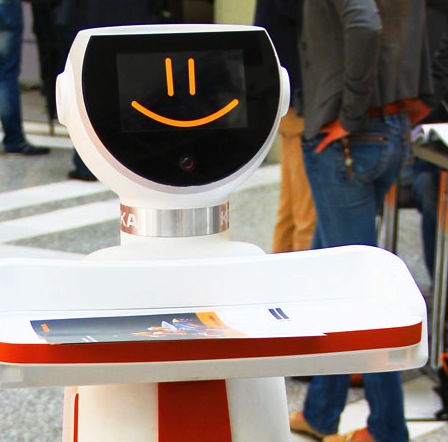
Robohub.org
Mark Stephen Meadows on “Do robots need heads?”
 I don’t know about you, but if something has a head I assume it has thoughts. When watching a movie I stare at the character’s face because I want to know what they feel. So for me a head’s a pretty important thing. If I’m going to talk with a robot I’d like it to have some kind of discernable head. It’s a useful thing if you want people to have warm fuzzy feelings about your robot. Its useful if people are interfacing with the robot.
I don’t know about you, but if something has a head I assume it has thoughts. When watching a movie I stare at the character’s face because I want to know what they feel. So for me a head’s a pretty important thing. If I’m going to talk with a robot I’d like it to have some kind of discernable head. It’s a useful thing if you want people to have warm fuzzy feelings about your robot. Its useful if people are interfacing with the robot.
Simply: a head allows a face, and a face allows interface.
So a head’s only needed if the robot has to interface with people (or other headed animals, say). A head is a design feature but the main function of an android is its form: it has to look like humans. Giving it a head is a function-follows-form decision. Wasn’t it Hunter S. Thompson who wrote, “Kill the head and the body will die?” Well, this should not be the case for military robots. The beheaded design can be improved. Saying that all robots need to have faces is like saying all animals need to have gills. For the deadly, dangerous, and downright dastardly work that robots today need to perform, like gastro-intestinal surgery, or military surveillance, a head won’t do much more than get stuck or blown off.
A head, like hands or a face, is a design decision that’s best left for the robots working directly with humans.
tags: c-Research-Innovation, Mark Stephen Meadows, RBI, Robotics by Invitation




